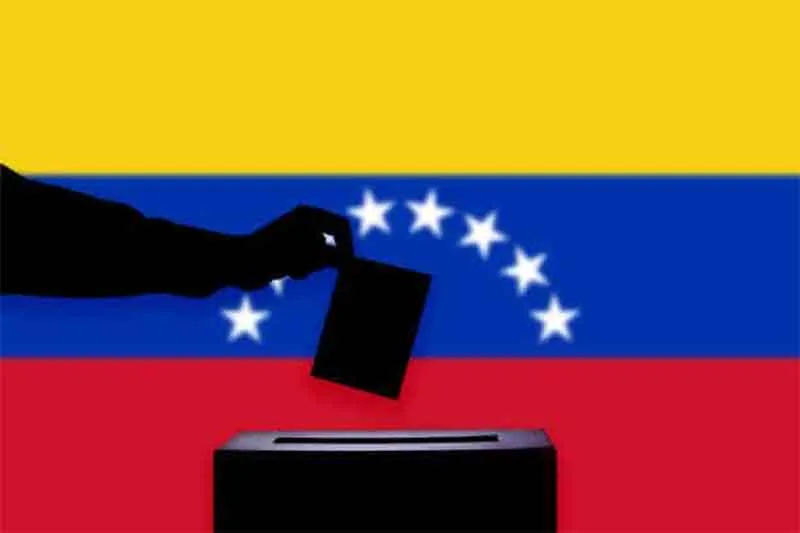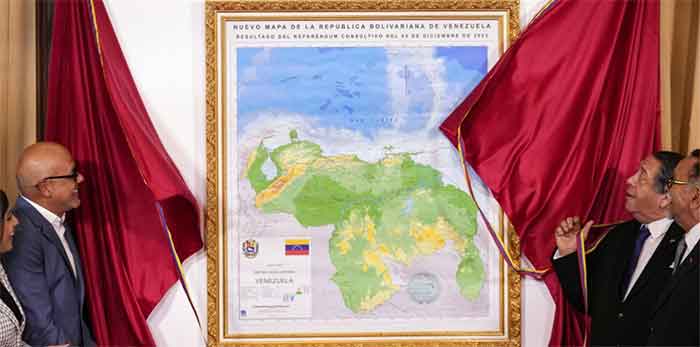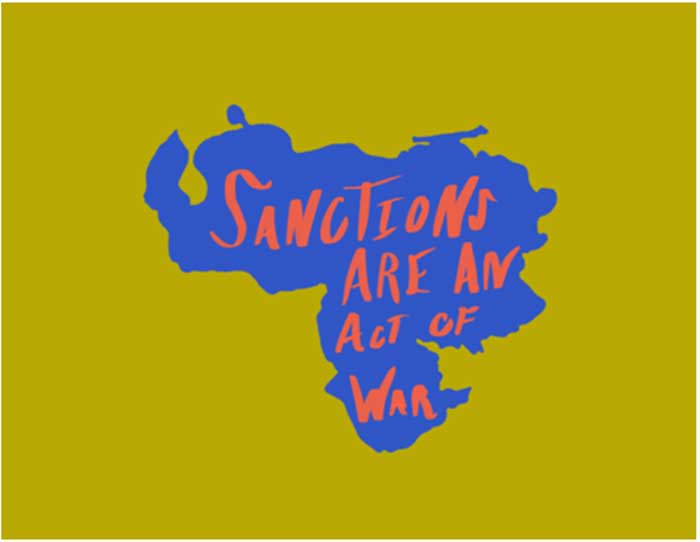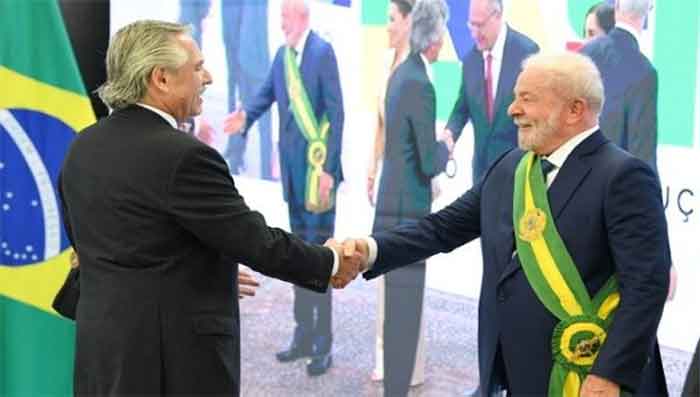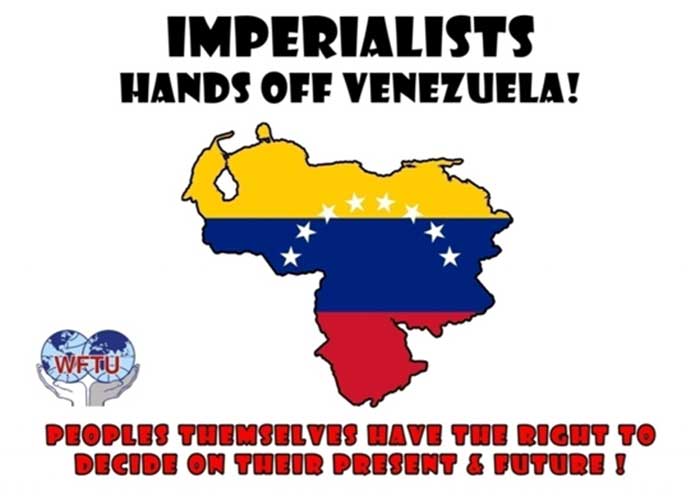
- US amasses special ops in Puerto Rico, army in Colombia
- Russian FM blasts US attempts to create pretext for military intervention
- No foreign soldier can tread our soil: Venezuela
- Venezuela’s FM terms US aim as the Politics of Death
- “Aid” trucks carried nails and wire for barricades
- Russia ready to mediate
- South Africa’s ANC expresses solidarity with Venezuela
- Brazil cannot submit to US imperialism: Lula
Amidst reports of interventionists’ positioning of troops near Venezuela, interventionists are creating pretext for military intervention in Venezuela. At the same time, Venezuelan leadership has vowed: No foreign soldier can tread Venezuelan soil.
Media reports said:
US amasses special ops in Puerto Rico, army in Colombia
By deploying troops and special ops forces to Puerto Rico and Colombia, Washington is getting ready to intervene in Venezuela and topple President Nicolas Maduro, the secretary of Russia’s Security Council said.
The US is “preparing for a military invasion” in Venezuela, Nikolai Patrushev told Tuesday.
The relocation of American special forces’ units to Puerto Rico, the deployment of the US Army units to Colombia and other facts evidently show that Pentagon is enhancing its military in the region in order to use it in ousting President Maduro.
“The people of Venezuela understand this clearly,” Patrushev said.
He added that he believes that Washington is deliberately stirring discontent among the Venezuelan people.
Lavrov blasts US attempts to create pretext for military intervention
Russia keeps a close eye on brazen US attempts to create an artificial pretext for a military intervention in Venezuela, Russian Foreign Minister Sergey Lavrov said after talks with his Indian and Chinese counterparts, Sushma Swaraj and Wang Yi.
“We are watching closely the reports about what is really happening there. We see how absolutely brazen attempts have been taken to artificially create a pretext for military intervention,” Lavrov said. “We hear direct threats from Washington that all options remain on the table. The actual implementation of these threats is pulling in military equipment and training [US] Special Forces,” he said.
The attempts to break through the Venezuelan border under the pretext of delivering humanitarian aid have been made “in hopes that there will be casualties,” Lavrov noted. “Then hysterical screaming will follow under the well-known scenario and an attempt of military intervention will be carried out.”
Moscow has been actively cooperating with all countries that are also concerned over the looming prospect of a military action, the foreign minister said. “It’s no coincidence that Brazil’s leadership has already stated that it won’t participate in this and provide its territory for the US for aggression against Venezuela,” he noted.
“I believe that no Latin American country, including members of the so-called Lima Group, actively calling for an early presidential election and supporting [self-proclaimed president] Juan Guaido, has voiced support for military intervention,” he noted.
Russia’s top diplomat called on the United States to listen to the opinion of regional states. “First of all, we advise to focus on the ideas of the Montevideo Mechanism envisaging a nationwide dialogue with participation of all political forces,” Lavrov explained. “Venezuelan President Nicolas Maduro has repeatedly stated his readiness for such a dialogue. Unfortunately, Mr. Guaido and his allies reject these proposals and only demand meeting their ultimatum on an early presidential election.”
Who is next?
Lavrov also drew attention to another alarming US statement. “Washington, which says in public that President Maduro’s days are numbered, directly states that Cuba and Nicaragua are next in line.” “The US is usurping the right to use force wherever it wants in order to topple unwanted regimes,” he noted.
The foreign minister expressed hope that all countries committed to the UN Charter will state that such approaches are unacceptable and will insist on holding a nationwide inclusive dialogue. “Venezuela’s problems should be solved only based on the principles enshrined in the UN Charter, namely sovereign equality of states, respect for sovereignty, territorial integrity and unacceptability of meddling in domestic affairs,” he underlined.
In their joint communiqué after talks on Wednesday, the Russian, Chinese and Indian foreign ministers stressed the demand to solve the Venezuelan crisis based on the UN Charter’s principles. “Everyone without exception should respect this, including the United States,” he said.
No foreign soldier will tread Venezuelan soil
Diosdado Cabello
A Prensa Latina report said: The president of the National Constituent Assembly (ANC) of Venezuela Diosdado Cabello assured that no foreign soldier would tread Venezuelan soil, in response to the possibility of a US military aggression against the South American nation.
‘Anyone who attacks the country or supports an intervention will be declared an enemy of the country,’ said the head of the plenipotentiary body when he spoke at a popular gathering in the eastern state of Delta Amacuro.
Diosdado Cabello is also first vice president of the United Socialist Party of Venezuela (PSUV). He reiterated the call to the people to maintain unity and absolute mobilization together with the Bolivarian National Armed Forces in defense of sovereignty and peace.
US aim: the Politics of Death
Following a request from the United States, the United Nations Security Council held a session to discuss the state of Venezuela and its internal political situation.
This is the second session of the Security Council.
Representatives from the United States, France, United Kingdom, Russia, China, Poland, Peru, The Dominican Republic, Belgium, South Africa, Kuwait, Germany, Indonesia, and Venezuela spoke to the international delegation.
The Venezuelan representatives have reiterated the rejection of the use of force by U.S. authorities.
Venezuelan Foreign Minister Jorge Arreaza called the international aggression a threat to Venezuela’s sovereignty and the rights of a free people as well as a violation of the United Nations charter.
“Now is the time for us to return to sanity and respect international law and respect the Venezuelan constitution. We are waiting to see the members of the Venezuelan opposition. Mr. Guaido and whoever else- they will decide who will sit down with the constitutional government of Venezuela, then among Venezuelans, we can build our own solution. Without intervention, interference from anyone, much less the United States,” Arreaza said.
The Bolivarian official thanked the members of the Montevideo Mechanism for its support for peaceful dialogue and allowing the country to solve its differences domestically.
“We are prepared to sit down and to come up with solutions with Mr. Guaido and whoever else wishes to sit down with us, but they don’t wish to sit down with us. They say there is no time for dialogue, Mr. Maduro has to go, the regime has to change, there has to be an invasion in Venezuela. But there’s no call in this security council to say, ‘You have to sit down,’” the minister said.
Arreaza asked UN Security Council members to consider the fact that the United States is threatening to shoot migrants along its southern border and what would happen if Venezuela, Nicaragua, or Cuba – all countries, which have been burdened with U.S. intervention – were intervened, citing a “humanitarian crisis.”
“Venezuela is staying out of the internal affairs of the United States and the electoral campaign here… There’s a lot of hypocrisy and arrogance at play here. And this is what the UN Security Council should address”, said the Venezuelan Foreign Minister.
“The Security Council is not here to make war, the Security Council is not here to establish conditions for others to make war, the Council is not here to endorse violent breaches of the United Nations Charter, rather the Security Council is here to maintain international peace and security and to preserve future generations from the scourge of war/ Let’s save Venezuela and this generation because the threat of war is here today,” said Arreaza.
Arreaza’s arguments were supported by a number of countries, among them the Russian representative.
China also joined in the voice against intervention by saying that “We oppose using so-called humanitarian aid for political purposes to destabilize Venezuela and the wider region”
“Aid” trucks carried nails and wire for barricades
Showing photos of seized cargo Arreaza said trucks supposedly carrying “humanitarian” supplies to Venezuela were also loaded with nails and wire.
Denouncing the botched delivery as a “well-orchestrated operation to violate the territory of Venezuela,” Arreaza presented what he called evidence of the US-led effort being a Trojan horse aimed at inciting a coup.
“And let me tell you, when the trucks were inspected, it turned out that there was not just food and medicine in the trucks, but there was equipment for barricades. There were nails, wire and so on and so forth. And this is what is used by the opposition in Venezuela,” Arreaza said, showing the photos of what looked like piles of heavy wire lying on the ground.
Arreaza said that Caracas also has video proof that can be viewed by all those interested.
Arreaza also blasted Sen. Marco Rubio (R-FL), who has been tweeting strong-worded statements zealously promoting regime change in Venezuela.
Arreaza said that Rubio’s open call for violence is incompatible with American values, since the US prides itself on being the paragon of democracy.
The minister said: “He is representing the people of the United States and the people of Florida. Are these the values of the people of the United States? To call for the killing of the president? Because in this context it is obviously what this picture means.”
“They use foreign policy for [US President Donald] Trump to ensure that he will be nominated in Florida,” he said, adding that Trump has to do something “to maintain his integrity as a president.”
“So, perhaps, they come up with a military operation in Venezuela?”
“The coup has failed. It’s time to return to common sense”, Arreaza said.
Caracas can only “hope” that handlers in Washington will give Guaido their “authorization” to resolve the crisis through “dialogue and negotiations.” Arreaza said Venezuela is open to mediation from Latin American counties, as well as from the EU, and looks forward to talks “without agenda.” The senior Venezuelan diplomat did not rule out snap elections as a way to resolve the stalemate as he said: “There are elections, maybe, or there are other possible solutions, maybe.”
The UNSC meeting on Tuesday was used by the US as an opportunity to call for more sanctions against Caracas and drum up support for its rhetoric of regime change.
Speaking at the meeting, the US special envoy for Venezuela, Elliott Abrams, called on UNSC member states “to consider what resources and tools they have to contribute to the Venezuelan democracy” and “pressure the Maduro regime to peacefully step down.”
Russia ready to mediate
Russia is ready to render all possible assistance in the search for a compromise between Venezuela’s conflicting political forces, Russia’s UN envoy Vasily Nebenzya told the UN Security Council on Tuesday.
“On our part, we are ready to assist in the search for mutual understanding between all constructive and patriotically-minded forces in Venezuela,” he said.
The Russian diplomat also warned against the military scenario, saying that it would entail “most severe consequences for the region.”
Nebenzya also requested all countries in the region “to firmly declare their support of the UN Charter, rejection of threats to use force, use of force and flagrant interference into a sovereign state’s internal affairs.”
Comparing with Haiti
He also said that Russia has prepared a draft Security Council statement on Venezuela, similar to the one adopted for Haiti on the US initiative.
“On February 21, the US delegation came forward with a draft UN Security Council media statement on events in Haiti, which received unanimous support from all members of the UN Security Council,” Nebenzya said, addressing US Special Representative for Venezuela Elliott Abrams. “Are our US colleagues ready to adopt a similar text regarding Venezuela in the form of a statement by the UN Security Council chair?”
“It’s hard not to notice that it [the text] concerns a practically identical situation. The only difference is that in Haiti’s case, Washington has decided to support the legitimate government, at least for now,” the Russian diplomat added.
Forced-feeding
The United States should unfreeze Venezuela’s assets instead of going ahead with its hypocritical attempts to deliver aid to Venezuela, which look more like “forced-feeding,” Nebenzya said.
“The Venezuelan authorities are ready to accept the required humanitarian and technological assistance. However, in order to work according to this scheme, it is necessary to unblock an opportunity for Caracas to pay for the delivery of food and medicines,” the diplomat told.
Commenting on the February 23 attempt to deliver aid to Venezuela despite the government’s resistance, Nebenzya said “under no circumstances can it be described as a humanitarian mission.”
“What took place on Saturday looks not like aid, it looks like what the US calls ‘force-feeding.’ It’s a type of torture, in case you did not know,” he said.
“Instead of a hypocritical attempt to deliver aid worth $20 million, it is necessary to immediately unblock the accounts of Venezuelan state-run companies in US banks, worth $11 billion, which were allocated by the government to purchase medicines, food and daily essentials,” he said.
UN senior official seeks dialogue
Deputy Secretary-General of the UN Amina Mohammed insisted Tuesday on the need for the Venezuelan government and the opposition to negotiate, avoid politicizing humanitarian aid and to find a peaceful solution to the conflict. The United States has also called for a special Security Council meeting.
“We encourage both parties to sit down at the negotiating table for the sake of Venezuelans and seek a peaceful resolution,” Mohammed said as she was visiting Spain to promote the United Nations’ Agenda for Sustainable Development.
South Africa’s ruling ANC expresses solidarity with Venezuela
The National Working Committee (NWC) of the African National Congress (ANC) expressed their solidarity with the Venezuela people and discussed internal matters in a meeting Monday.
In a statement released Tuesday, the ANC and its Alliance partners “affirmed their solidarity with the people of Venezuela in finding a political solution to the benefit of all the people of Venezuela.”
The group said that the Secretary-General would soon lead a Tripartite Alliance delegation to Venezuela on a fact-finding mission.
Brazil cannot submit to US imperialism in Venezuela: Lula
In a letter from prison, former president Lula Da Silva says that the U.S. and Brazil shouldn’t intervene in Venezuela, and criticized the U.S. blockade as a ‘dirty trick’.
Lula spoke out from prison against the U.S. using Brazil as a puppet to intervene in Venezuela, saying that Jair Bolsonaro is “submissive” to the U.S. by joining its attack on Venezuela.
In a letter to the editors of the “alternative” news outlet, Nocaute, Lula states, “We cannot allow Brazil to submit to the United States. We cannot turn Brazil over to imperialism.”
The former head of state goes on to say in his handwritten letter: “We cannot turn Brazil over to imperialism. (Our) fight for sovereignty is a demonstration of patriotism and dignity.” The Workers’ Party (PT) leader says, “Venezuela’s issue is not for Americans.”
Lula called attention to the misinformation regarding Venezuela by the international mass media stating, “just to say that the people are starving, and not to mention the (U.S.) blockade, is a dirty trick.”
“The (economic) block is killing children, innocent men and women, and the Americans are experts at blocking, Cuba can attest to that,” says Lula to the Nocaute editor Fernando de Morais and journalist, Ana Roxo.
“Love will always win. The truth will always win. We will win because we have the truth,” wrote Lula from his prison in Curitiba, Brazil. “Dear Fernando, I continue to affirm: I do not change my dignity for my freedom. I am sure, History will absolve me (Fidel),” ended the political leader.
US-backed Guaido could face 30 years in prison
U.S.-backed opposition politician Juan Guaido may face up to 30 years in prison, a judge said.
Guaido’s visit to Colombia on February 22 violated the travel ban imposed by Venezuela’s Supreme Court, deputy judge of the Supreme Tribunal for Justice Juan Carlos Valdez told Tuesday.
“He is a person hiding from justice. What happens with runaways who are re-entering the country and are found by the authorities? They must be caught and sent to prison,” Valdez said, adding, “He may face up to 30 years in jail.”
State prosecutors are currently analyzing Guaido’s conduct for possible crimes, the judge added.

